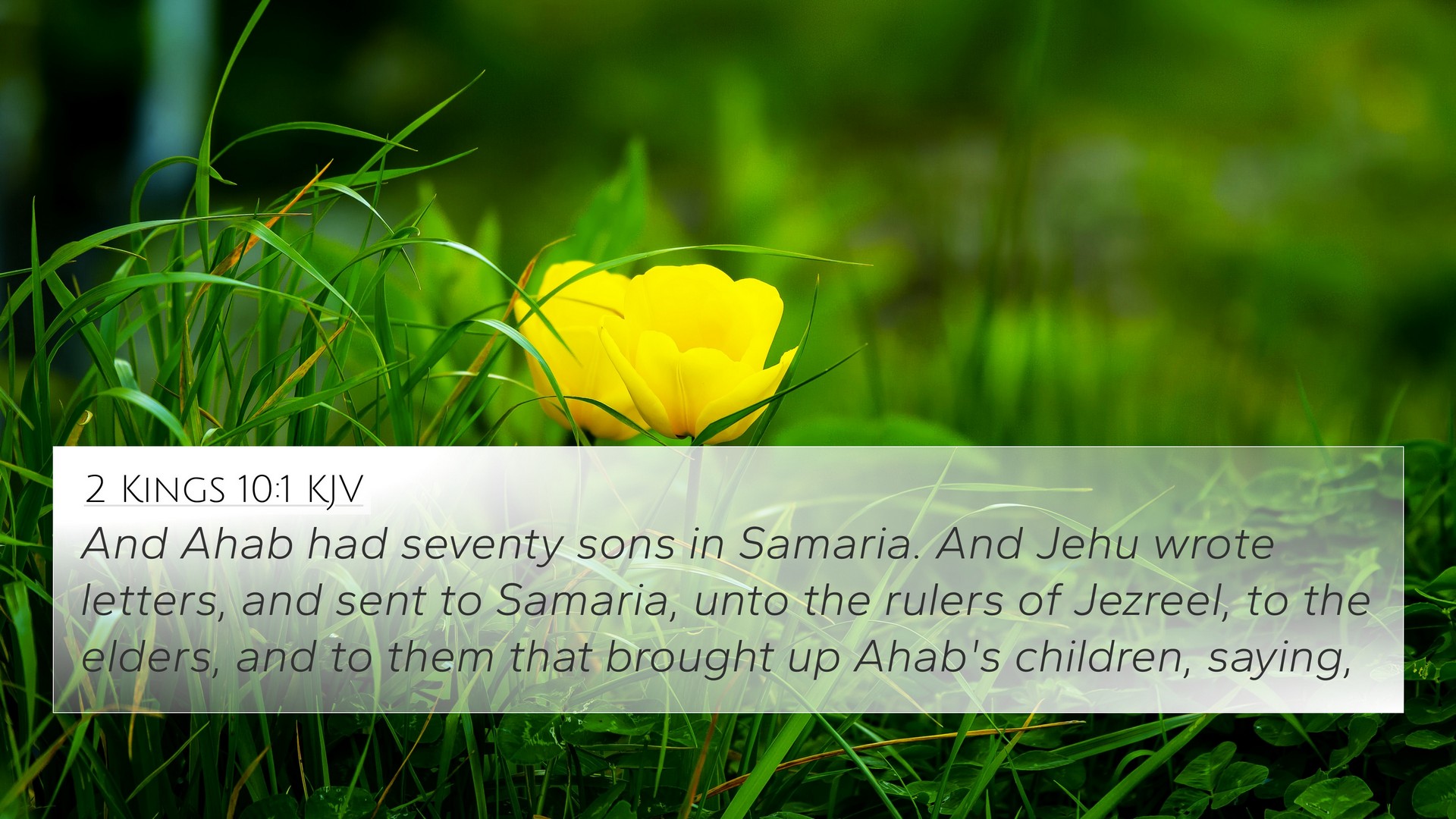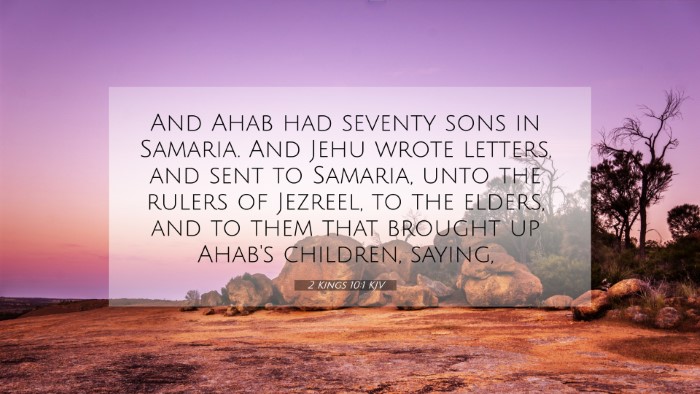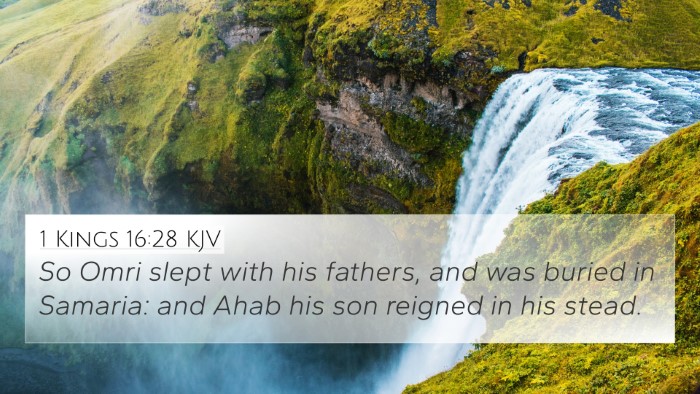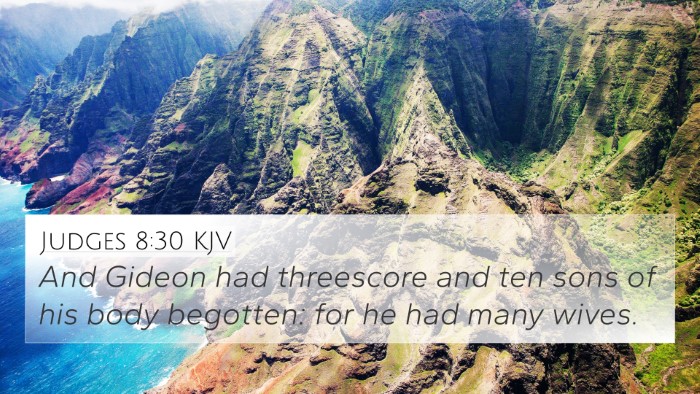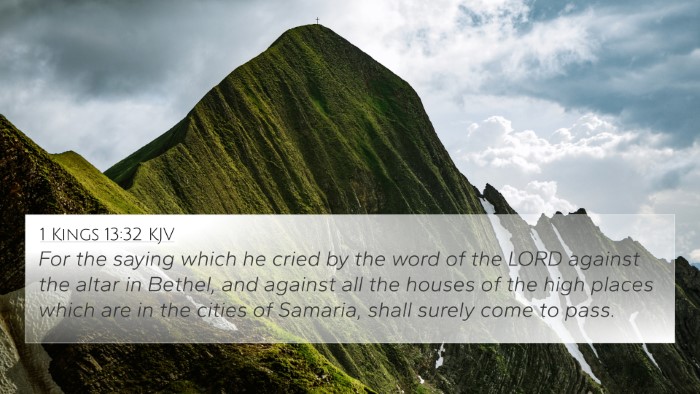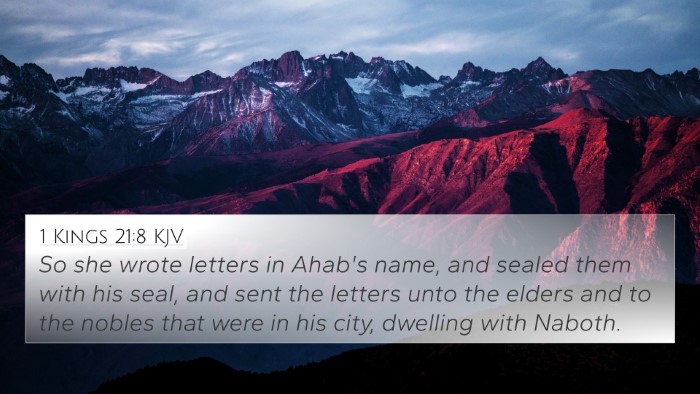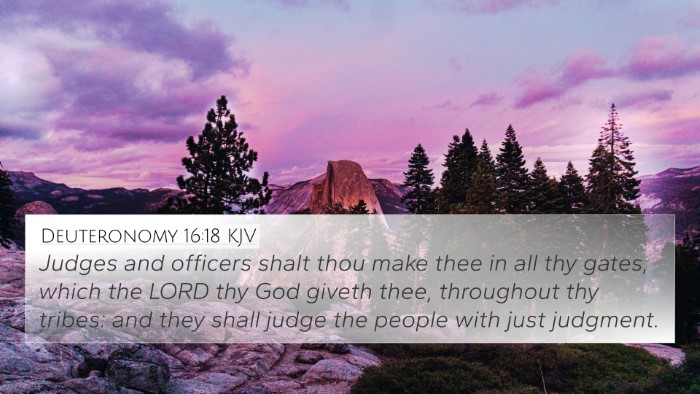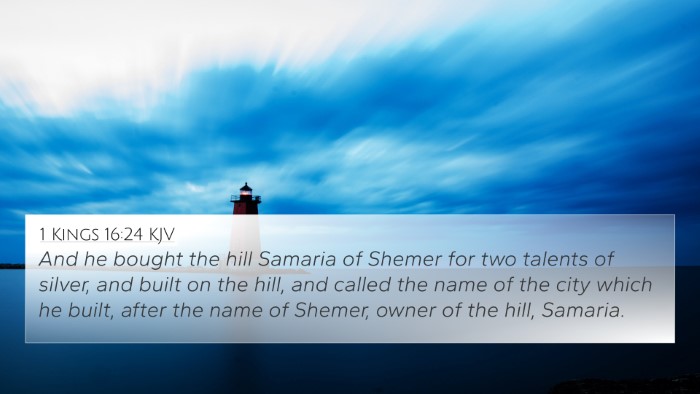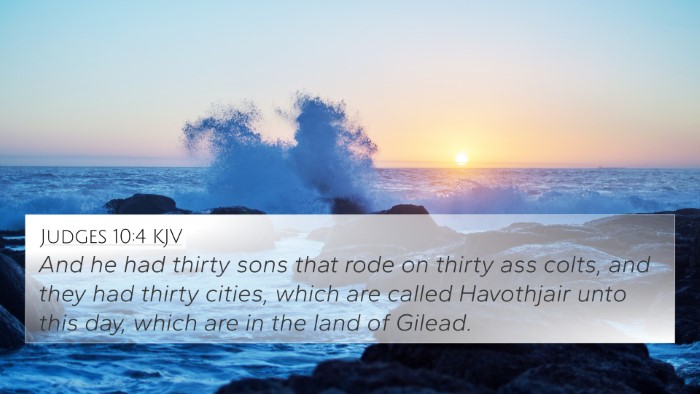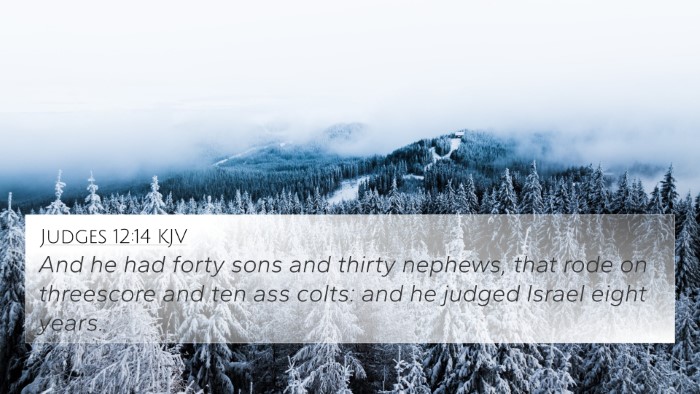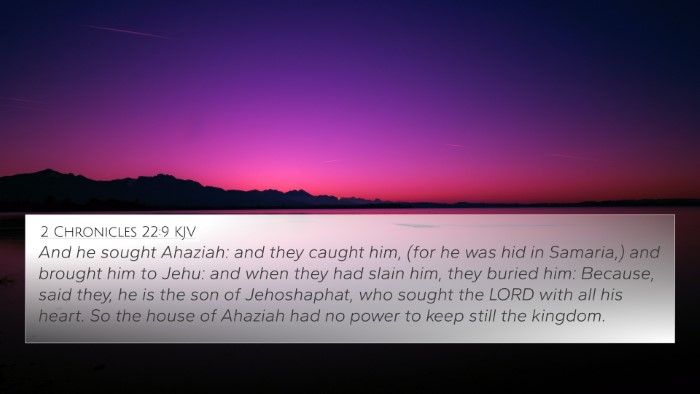The verse introduces a critical moment in the biblical narrative, where Jehu, anointed king of Israel, sets a plan into motion against the house of Ahab. Understanding this verse, particularly through cross-references and commentaries, reveals several themes and important connections within the broader context of Scripture.
Contextual Background
Jehu's rise to power marks a significant turning point in Israel's history, as he is called to eliminate the evil influence of Ahab's dynasty. Ahab, known for his idolatry and wickedness, left a legacy that Jehu was explicitly commanded to eradicate.
Interpretative Insights
- Matthew Henry: Highlights the cruelty of Ahab's dynasty and the necessity of divine judgment. The letter sent by Jehu signifies both the authority he is claiming and the clear intent to rid the land of idolatrous influences.
- Albert Barnes: Focuses on the implications of Jehu's actions for the state of Israel and how the leaders of Jezreel must feel the urgency and seriousness of the impending judgment.
- Adam Clarke: Explains the significance of Ahab's numerous sons as a representation of the political structure that Jehu is about to dismantle. Clarke emphasizes that this is a decisive act of fulfilling prophecy against Ahab's household.
Cross-References & Connections
This verse can be examined in light of various related scriptures that deepen the understanding of its meaning:
- 1 Kings 21:29: God pronounces judgment upon Ahab, foreshadowing the eventual downfall of his household.
- 2 Kings 9:6-7: The anointing of Jehu as king directly relates to the call to destroy the house of Ahab, establishing continuity in the narrative.
- Hosea 1:4: Here, Hosea echoes the theme of judgment against the house of Jehu, linking Jehu’s actions to prophetic warnings.
- Matthew 3:10: The New Testament insight into judgment bears similarity to Ahab’s fate, showcasing a thematic continuity of divine retribution across both testaments.
- Galatians 6:7: The principle that one reaps what they sow correlates with the judgment faced by Ahab and his descendants.
- 2 Kings 9:22: When Jehu confronts Jezebel, it reinforces the violent tendencies and the zeal for righteousness that motivate his actions.
- Deuteronomy 13:12-15: The law's call to execute judgment upon idolaters reflects the justification and mandate for Jehu's impending actions against Ahab’s lineage.
Thematic Connections
The narrative of 2 Kings 10:1 presents themes of:
- Divine Judgment: The execution of God's will against unrighteousness.
- Leadership and Authority: The implications of Jehu’s kingship in relation to previous rulers.
- Judicial Purity: The elimination of idolatrous practices and their leaders.
Practical Application
Understanding this verse calls for reflection on the nature of leadership and the responsibilities that come with power. Jehu’s actions prompt an exploration of personal accountability and the consequences of one's legacy.
Conclusion
2 Kings 10:1 stands as a pivotal verse in the narrative of Israel's history, marking the fulfillment of divine judgment against Ahab’s household. Through cross-referencing other biblical texts, one can see how interconnected the themes of judgment, leadership, and divine retribution can be throughout scripture.
Further Study and Reflection
For those looking to deepen their understanding of Biblical texts and the connections between them, utilizing tools such as a Bible concordance or a cross-reference guide can be invaluable. Engaging in cross-reference Bible study helps uncover the rich tapestry of themes present in the Scriptures.
